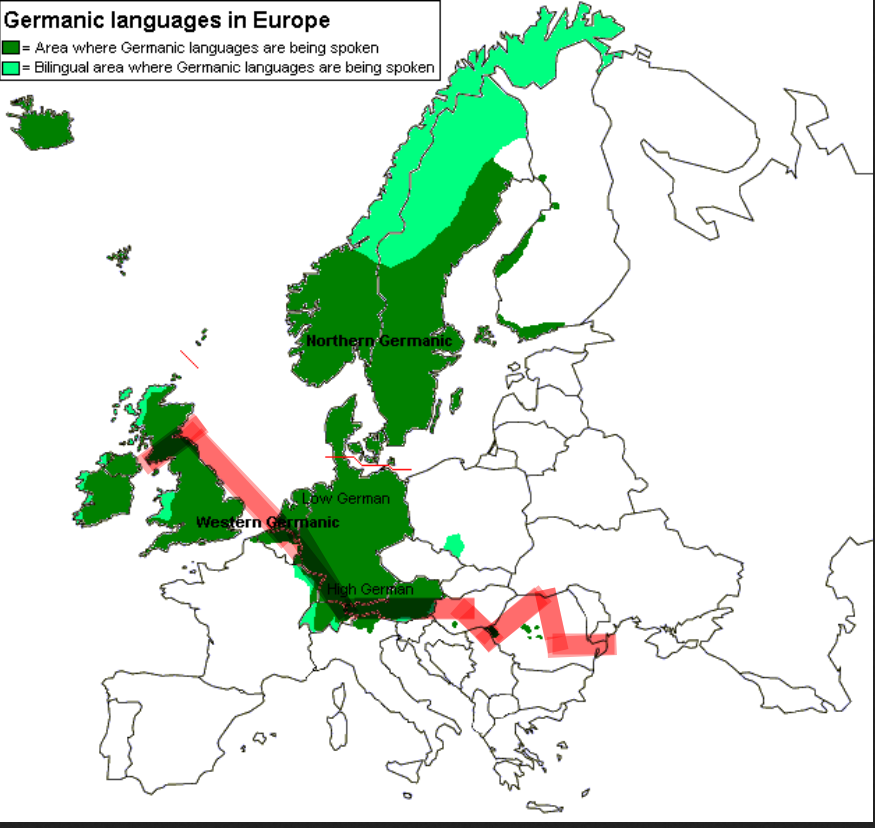In this question, I would like to make a comparison between two settlements that occurred in the Early Middle Ages in Europe, that seem to be very similar, however they had very distinct outcomes linguistically speaking.
The settlements in question are the Gothic/Vandal invasion of Iberia and the Anglo-Saxon settlement of Britain. I shall talk first of the latter:
Britain had been controlled by the Romans for almost 400 years, and the population was mainly Celtic, with a Latin-speaking governing elite. I suppose that the language spoken in Britain at this time would be some sort of a mix between Celtic languages and Latin, similar to what happened in other areas of Europe where romance languages developed (e.g., France).
Then, the Saxons, Angles and Jutes started to arrive to Britain (at the same time the Romans were leaving for good) and drastically changed the language of the country, from Celtic languages/vulgar Latin to the Germanic Old English. In later centuries, with the influence of Latin, Norman, Old Norse and other languages this language would evolve to modern English.
Genetic studies show today that approximately 20-40% of British DNA is Anglo-Saxon, so we could expect a normal mixing between the immigrants and the native population at the time, and not a massive immigration of Germanic tribes nor the Saxons completely wiping out the native populations. Even so, English survived.
Now, I'd like to talk about the invasion/settlement of Iberia by the Goths. We had an area controlled by the Romans for a long time and other native tribes as well. Germanic invaders came and established their kingdoms. It is important to notice that the Germanic Kingdoms in Iberia lasted until 711 AD, when the Muslim Conquest happened. So we had approximately 300 years of Germanic rule in Iberia.
However, we know that the languages of Iberia are romance languages (Portuguese and Spanish), which shouldn't be very intriguing as I expect that the number of immigrants was slightly less significant than the number in Britain (I'm not aware of the numbers in the Iberian case). My first question is Why is that? Why did Iberia remained Latinized, even after the Germanic and Muslim conquests?
And for me the most surprising is that (as a native Portuguese speaker I can say): The Germanic traits were completely wiped out of Iberian languages (if they ever existed).
Why is that? What is the major difference between the Iberian and the Anglo-Saxon settlements that made in one case the Germanic language to be the most dominant language, and in the other case made the Germanic influences in the language nearly undetectable?
